
Martin Luther Ökumenisches Heiligenlexikon
Wartburg Castle, where Martin Luther spent eleven months in protective custody, following his excommunication and condemnation at the Diet of Worms, 1521. (Hulton Archive/Getty Images )

Wartburg where Martin Luther translated the Bible Eisenach, Germany in 2019 Germany
Martin Luther, (born Nov. 10, 1483, Eisleben, Saxony—died Feb. 18, 1546, Eisleben), German priest who sparked the Reformation. Luther studied philosophy and law before entering an Augustinian monastery in 1505. He was ordained two years later and continued his theological studies at the University of Wittenberg, where he became a professor of.
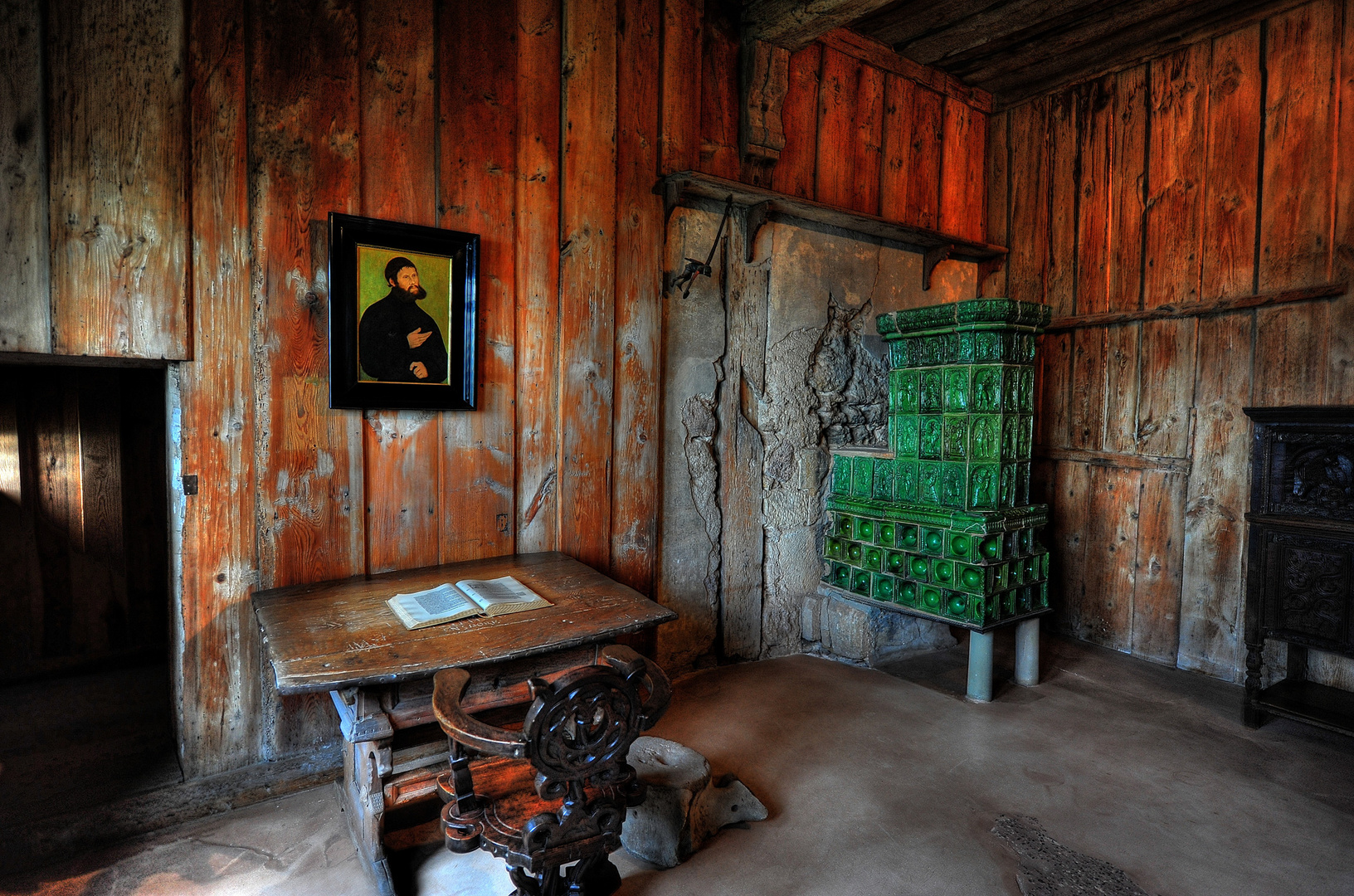
Wartburg, Luthers Stube Foto & Bild world, deutschland, thüringen Bilder auf
The story of Martin Luther's "kidnapping" has given rise to impressions of intrigue and daring adventure and his ten months at the Wartburg castle near Eisenach evoke pictures of restful solitude—perhaps from Luther's descriptive names "My Patmos" and "Land of the birds." The reality is different.
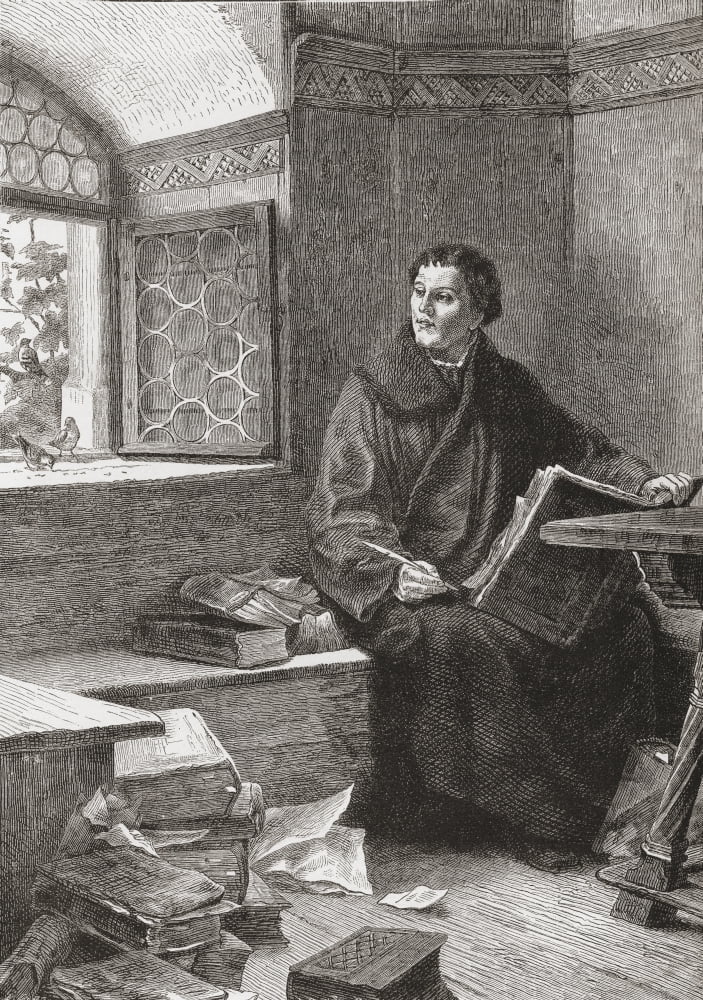
Martin Luther Translating The Bible At Wartburg Castle, Germany In 1521. Martin Luther, 1483
Luther recognized that his failure to recant at the Diet of Worms (April, 1521) had put him in very serious danger. For this reason, after his defiant confession of faith before the Emperor, he was rushed away back to Wittenberg by coach. On the way back, he was overtaken by a group of Frederick the Wise's guards disguised as highwaymen.

Martin Luther Writing at Wartburg Castle, 15211522. posters & prints by Corbis
Luther recognized that his failure to recant at the Diet of Worms (April, 1521) had put him in very serious danger. For this reason, after his defiant confession of faith before the Emperor, he was rushed away back to Wittenberg by coach. On the way back, he was overtaken by a group of Frederick the Wise's guards disguised as highwaymen.

Martin Luther Translating the Bible, Wartburg Castle, 1521 posters & prints by Eugene Siberdt
Martin Luther was a German monk who began the Protestant Reformation in the 16th century,. Friends helped him hide out at the Wartburg Castle. While in seclusion, he translated the New.

Lutherstube, wo Martin Luther, in die Wartburg Schloss, UNESCOWeltkulturerbe, Eisenach
Martin Luther (l. 1483-1546) was a German priest, monk, and theologian who became the central figure of the religious and cultural movement known as the Protestant Reformation.. Worms & Wartburg. He was excommunicated in January 1521, and his case was turned over to the secular authorities who called Luther to appear at the Diet of Worms, a.
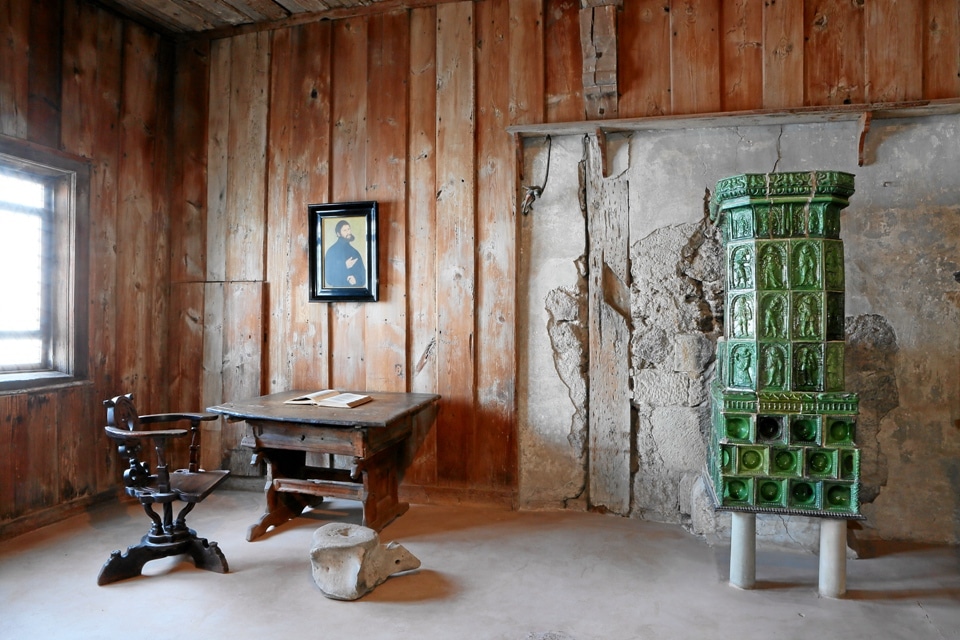
Die Wartburg 1000 Jahre deutsche Geschichte Varta FreizeitGuide
Luther departs Worms. A week later, after a staged kidnaping, Luther is taken to Wartburg. May 25, 1521: Charles V presents the final draft of the Diet of Worms ("The Edict of Worms") that declares Luther an outlaw, authorizes his arrest, and bans his literature.. Martin Luther dies at age 62 in Eisleben. He is later buried beneath the.
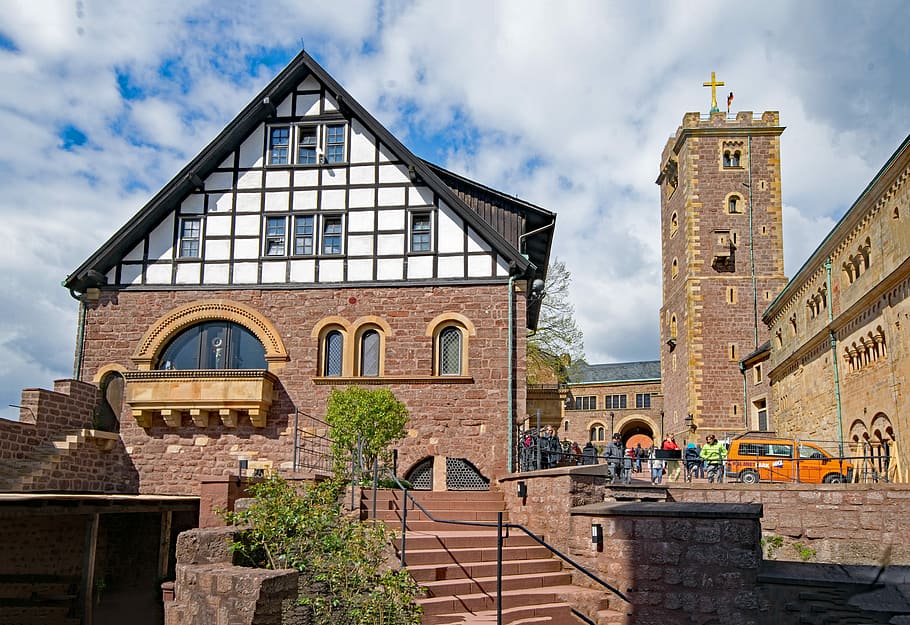
HD wallpaper Wartburg Castle, Eisenach, thuringia germany, martin, luther Wallpaper Flare
During his stay in the Wartburg, Luther began work on what proved to be one of his foremost achievements—the translation of the New Testament into the German vernacular.This task was an obvious ramification of his insistence that the Bible alone is the source of Christian truth and his related belief that everyone is capable of understanding the biblical message.
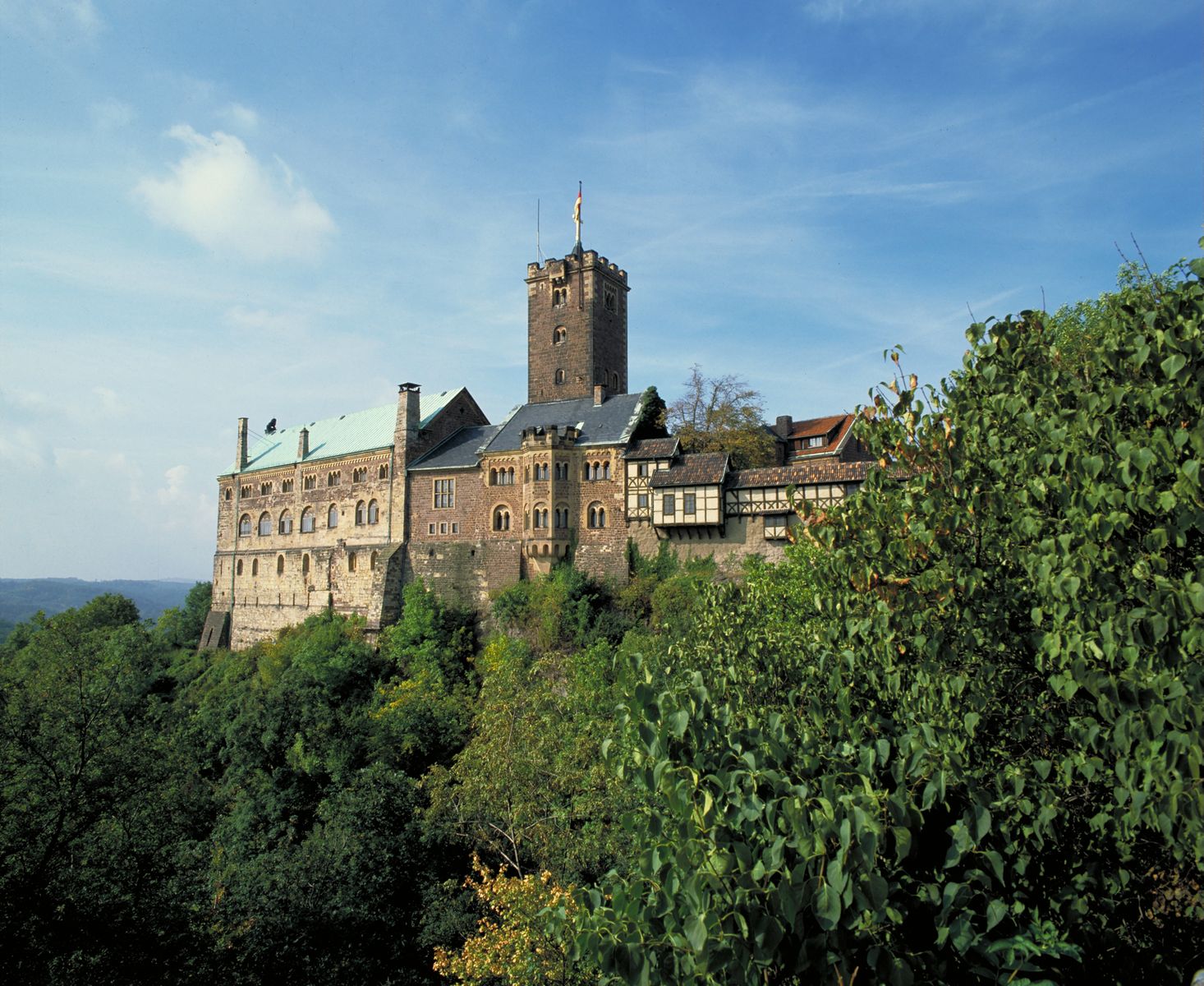
Germany Holidays Martin Luther Germany is Wunderbar
The elector Frederick III of Saxony sheltered Martin Luther in the Wartburg from May 1521 to March 1522, and Luther began his German translation of the original Greek New Testament there. In 1817 the Wartburg was the scene of a festival celebrating the Luther tercentenary.. (1818-1901) was the chief sponsor of a great restoration of the.
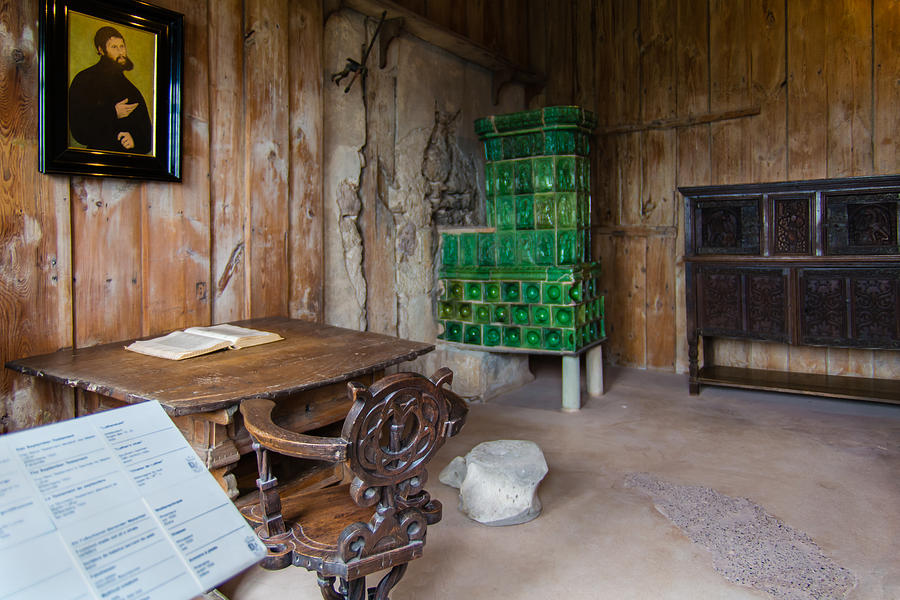
Martin Luther at Wartburg Castle Photograph by Robert VanDerWal Pixels
As early as 1517 Martin Luther started translating the Psalms into German. In 1521, when he was imprisoned in Wartburg, he set about translating the New Testament. This great undertaking was an immediate success. Martin Luther continued with his translation of the books of the Old Testament. The translation of the whole Bible was completed in 1534.

Luthers Persönlichkeit und die Folgen der Reformation WELT
Lutherans the world over know of the castle as the very place where Martin Luther made his translation of the Bible. The veneration of Saint Elizabeth, which extends far beyond the frontiers of Germany, includes Wartburg Castle where she lived and worked.

Der 4. Mai 1521 Vor 500 Jahren wurde Martin Luther auf die Wartburg "entführt" Iserlohn
The former refuge of reformer Martin Luther was considered a national symbol and the assembly a protest against reactionary politics and Kleinstaaterei . History After the German "Wars of Liberation" against Napoleon and the French occupation, many people were bitter about dreams of German national unity shattered after the 1815 Congress of Vienna.

Luther auf der Wartburg Lutherweg in Hessen e.V.
It was the home of St. Elisabeth of Hungary, the place where Martin Luther translated the New Testament of the Bible into German, the site of the Wartburg festival of 1817 and the supposed setting for the possibly legendary Sängerkrieg. It was an important inspiration for Ludwig II when he decided to build Neuschwanstein Castle.

Entführung auf die Wartburg Martin Luther
Martin Luther's Life: The Wartburg Luther at the Wartburg (1521/22) Luther as Junker Jörg at the Wartburg On May 4, 1521 Elector Friedrich the Wise allowed Luther to be brought to the Wartburg near Eisenach. The powerful Elector hoped that taking Luther out of the limelight would weaken the constant attacks against the Reformation.
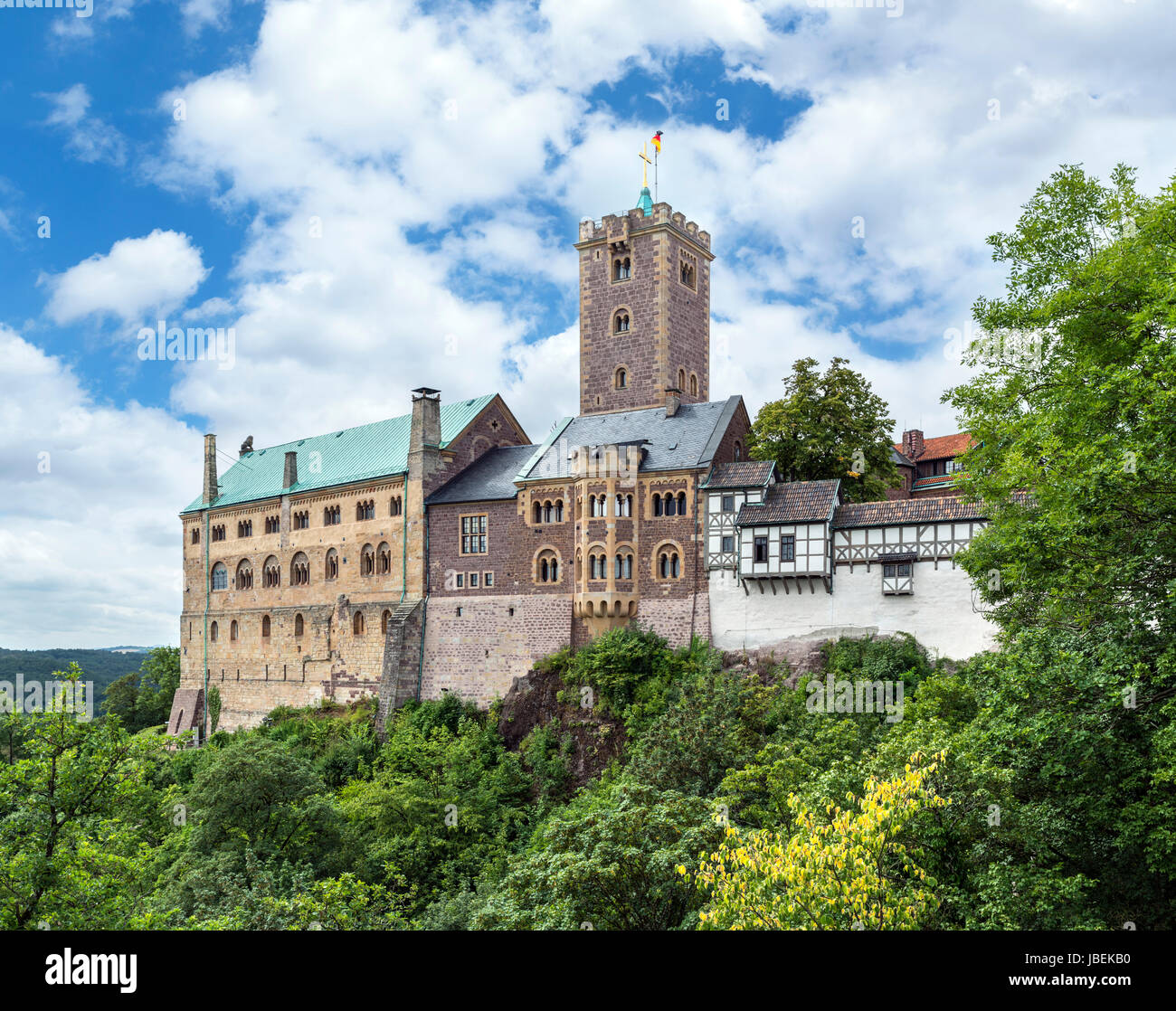
Die Wartburg, wo Martin Luther das neue Testament der Bibel in Deutsch, Eisenach, Thüringen
That Martin Luther's Ninety-Five Theses helped launch the Reformation is beyond question. Dated October 31, 1517, Luther's letter to his superiors did include copies of the theses.
